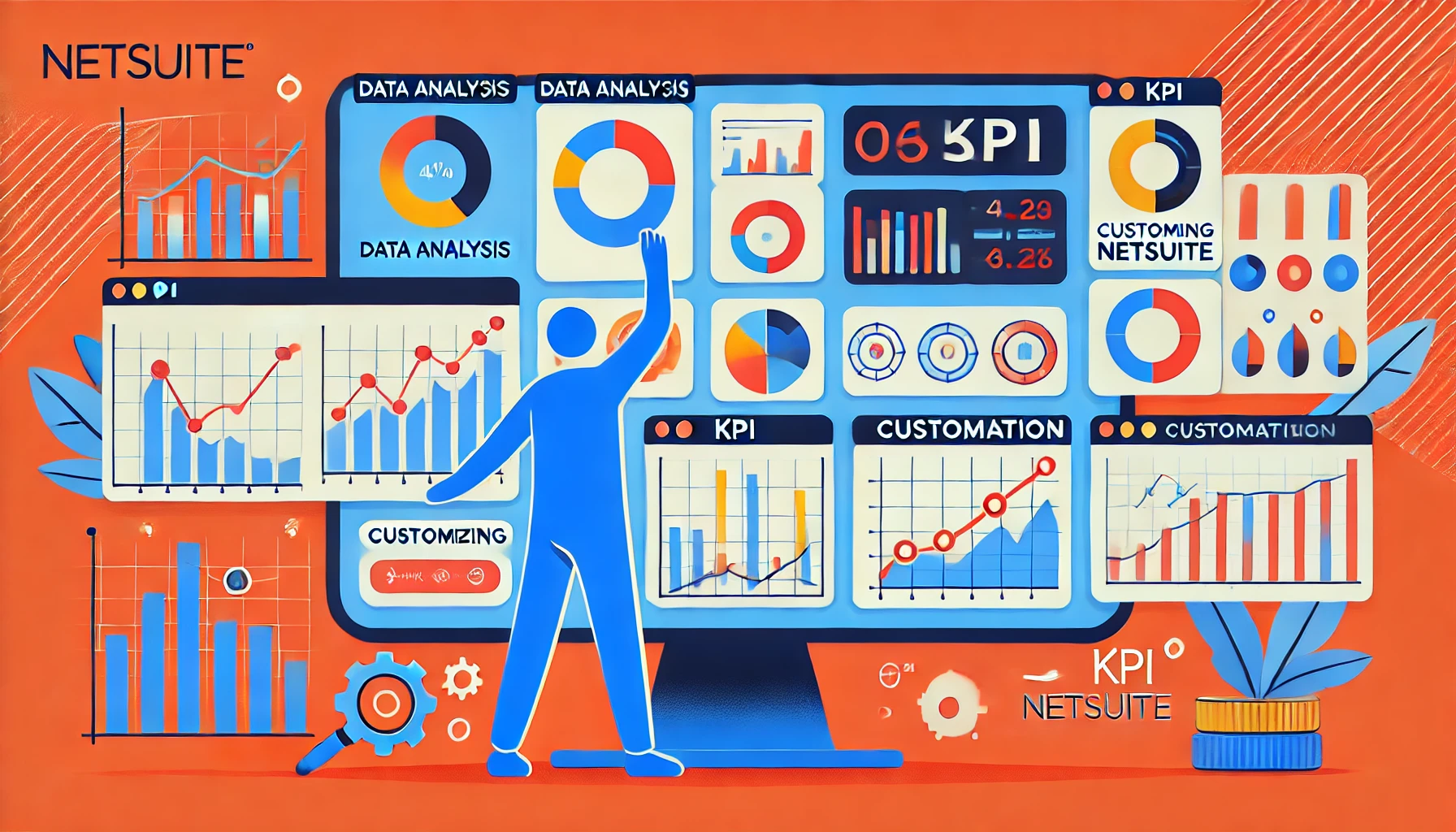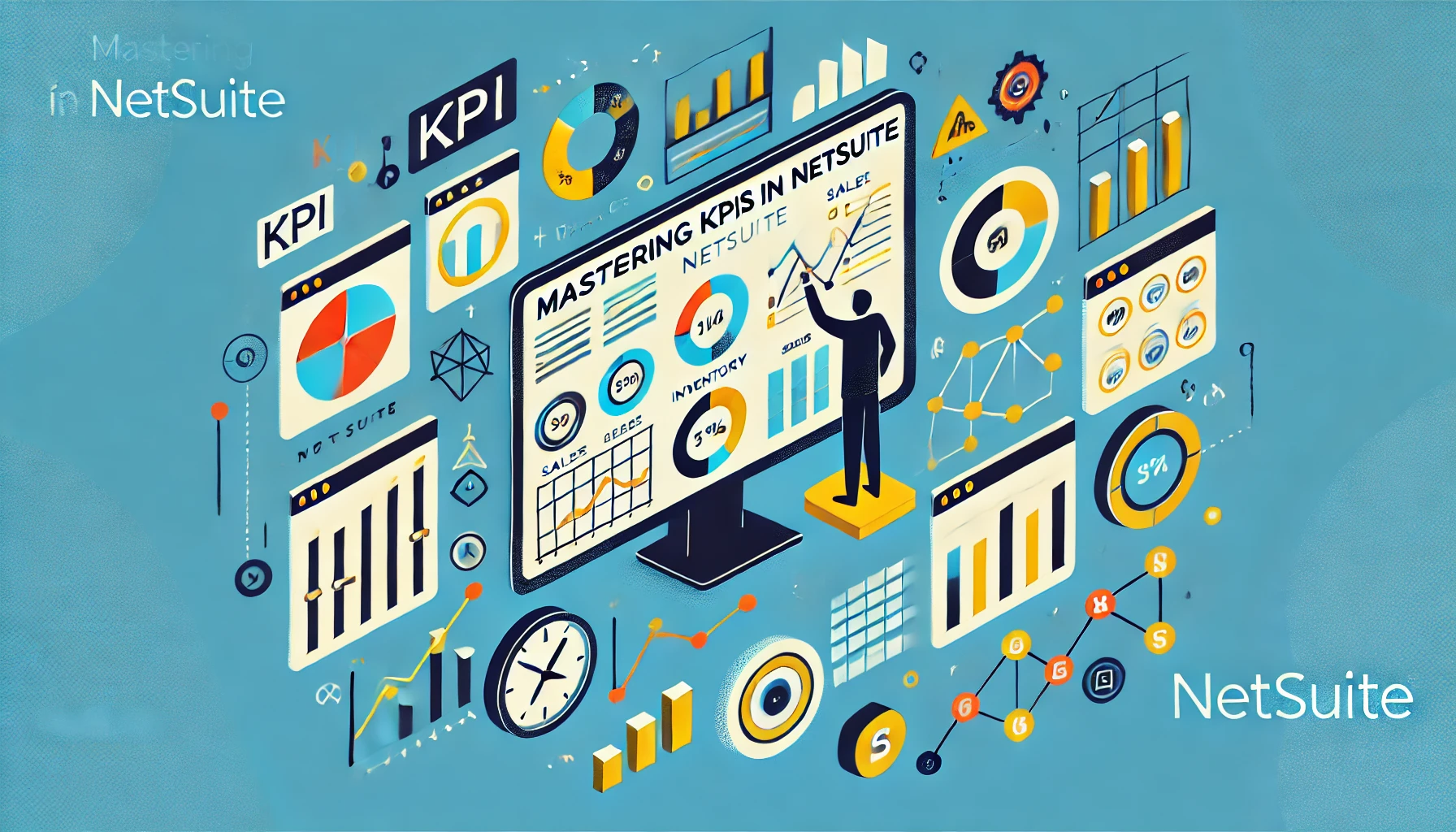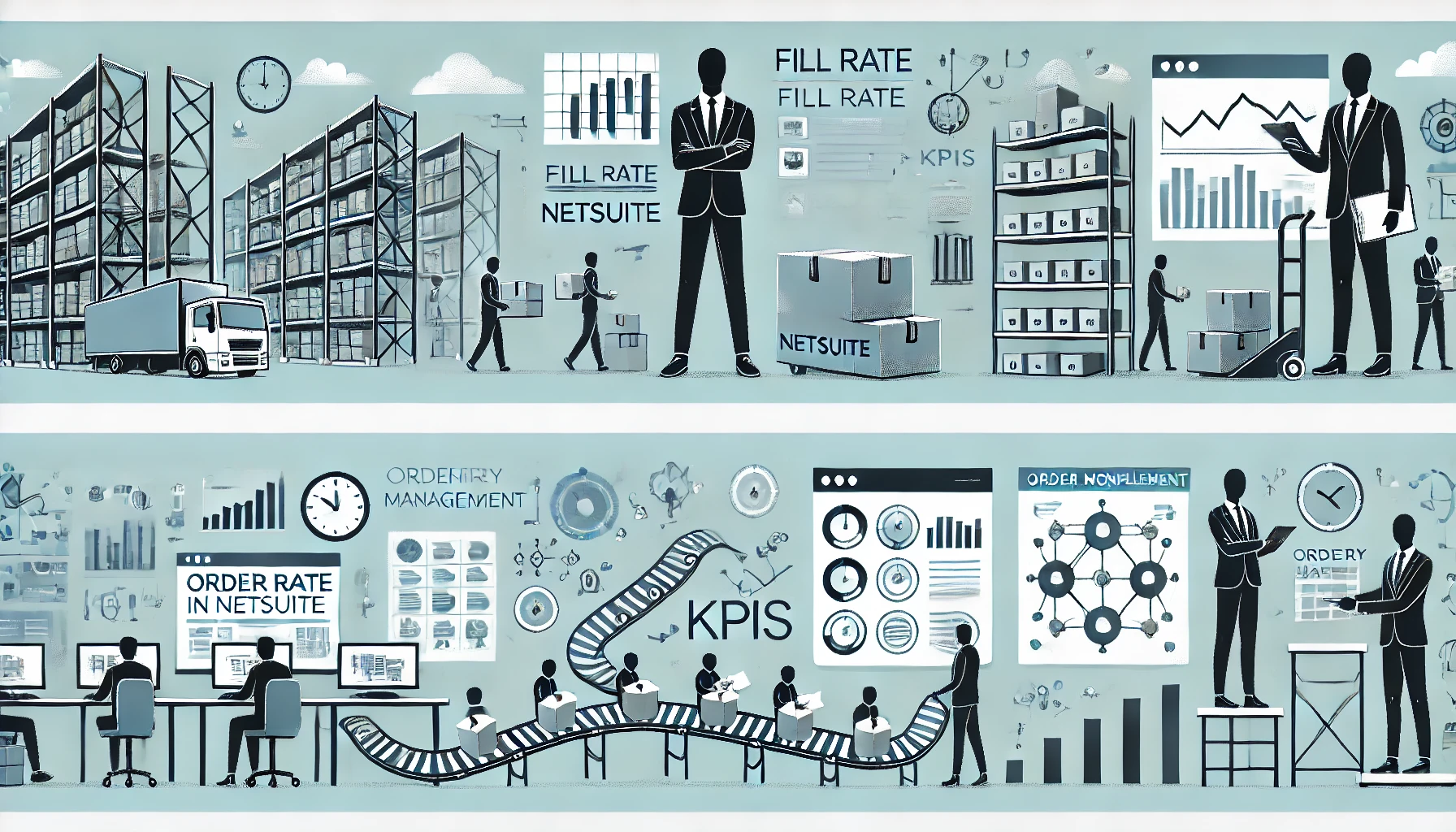Key Performance Indicators (KPIs) are essential metrics that help businesses track and measure progress toward their strategic objectives. In an age where data drives decisions, KPIs offer a clear picture of business performance and inform strategies for growth and improvement. NetSuite, a robust cloud-based ERP solution, offers powerful tools to track KPIs across all areas of your business, from finance and operations to customer service and sales.
This blog will guide you through the importance of KPIs in NetSuite and how to leverage them to optimize your company’s performance. Whether you are new to NetSuite or a seasoned user, understanding how to effectively implement and track KPIs will provide you with actionable insights to achieve your business goals.
Table of Contents
ToggleWhat Are KPIs in NetSuite?
In the context of NetSuite, KPIs are metrics that businesses use to assess their progress toward specific objectives. These indicators can range from financial metrics, like profitability, to operational KPIs that measure efficiency and productivity. NetSuite makes it easy to track KPIs in real time, enabling you to make data-driven decisions that can drive growth and improve efficiency.
NetSuite’s flexibility allows you to customize KPIs based on your unique business needs. Whether it’s tracking sales performance or operational costs, you can create, view, and analyze KPIs directly from your dashboard, providing real-time visibility into business performance.

Common KPIs Tracked in NetSuite
NetSuite provides a range of KPIs across multiple business functions. These KPIs help measure performance in key areas such as finance, sales, inventory management, and customer service. Below are some common KPIs you can track in NetSuite:
Financial KPIs
Financial KPIs help businesses monitor profitability, liquidity, and overall financial health. Some common financial KPIs in NetSuite include:
- Gross Profit Margin: This metric measures how much profit a business makes after subtracting the cost of goods sold from revenue. A high gross profit margin indicates efficient production or sales.
- Revenue Growth Rate: This KPI tracks the percentage increase or decrease in your revenue over time. It is essential for monitoring the success of your business’s growth strategies.
- Operating Cash Flow: This metric tracks the cash generated from business operations. It’s important for assessing a company’s ability to maintain its operations without needing external financing.
By monitoring these KPIs, businesses can ensure that they maintain a healthy financial position and make adjustments to maximize profitability.
Sales and Marketing KPIs
Sales and marketing KPIs help businesses measure the success of their customer acquisition strategies. Some common KPIs in this category include:
- Sales Conversion Rate: This tracks the percentage of leads that convert into paying customers. It’s a key metric for evaluating the effectiveness of your sales funnel.
- Customer Acquisition Cost (CAC): This metric tracks how much it costs to acquire a new customer. Lower CAC means more efficient marketing efforts.
- Customer Lifetime Value (CLV): CLV calculates the total revenue a business expects to earn from a customer over the entire duration of their relationship. It is crucial for determining long-term profitability.
By tracking these KPIs, businesses can assess the effectiveness of their marketing campaigns and sales strategies, leading to more informed decision-making.
Inventory Management KPIs
For businesses involved in retail, manufacturing, or distribution, inventory management KPIs are crucial for maintaining an efficient supply chain. NetSuite allows businesses to track the following inventory-related KPIs:
- Inventory Turnover Ratio: This KPI tracks how often inventory is sold and replaced. A high turnover ratio indicates that inventory is moving quickly and efficiently.
- Stockouts: This KPI measures the number of times an item runs out of stock. Frequent stockouts can signal issues with inventory management or forecasting.
- Order Cycle Time: This metric tracks the time taken to fulfill customer orders. A shorter order cycle time usually indicates an efficient fulfillment process.
By closely monitoring inventory KPIs, businesses can ensure that they maintain optimal stock levels while minimizing carrying costs and stockouts.
Customer Service KPIs
Customer service KPIs are vital for businesses looking to improve customer satisfaction and retention. Some common customer service KPIs include:
- Customer Satisfaction Score (CSAT): This metric measures how satisfied customers are with your product or service. It is typically measured using post-interaction surveys.
- Net Promoter Score (NPS): NPS measures customer loyalty by asking how likely a customer is to recommend your business to others. It provides insight into customer satisfaction and brand perception.
- First Response Time: This KPI measures how quickly your customer service team responds to customer inquiries or issues. A fast response time is crucial for providing excellent customer service.
These KPIs help businesses assess the effectiveness of their customer service teams and identify areas for improvement.
Setting Up KPIs in NetSuite
Setting up KPIs in NetSuite is a straightforward process that involves defining your business objectives, selecting relevant KPIs, and regularly monitoring them through NetSuite’s dashboards. Here’s how you can get started:
- Define Your Business Goals: Before setting KPIs, it’s important to clearly define your business goals. Are you aiming to increase sales, improve operational efficiency, or enhance customer satisfaction? Once you have a clear understanding of your business objectives, you can choose the most relevant KPIs to track.
- Select Relevant KPIs: NetSuite offers a wide variety of KPIs that you can choose from based on your business needs. You can also create custom KPIs if the pre-built options don’t suit your requirements. Select KPIs that align with your goals and provide actionable insights.
- Set Targets: Setting realistic targets for your KPIs is crucial for measuring success. Make sure your targets are SMART (Specific, Measurable, Achievable, Relevant, and Time-bound). For example, if you want to increase sales, a target could be to achieve a 10% increase in revenue by the end of the quarter.
- Monitor KPIs via Dashboards: NetSuite’s customizable dashboards allow you to track your KPIs in real-time. You can set up alerts to notify you when KPIs are trending in a positive or negative direction. This gives you the ability to make timely adjustments to your business strategies.
- Review and Adjust: It’s important to review your KPIs regularly to ensure they are still relevant to your business objectives. If necessary, adjust your KPIs or set new targets to keep pace with changing business conditions.
Benefits of Using NetSuite for KPI Tracking
NetSuite provides several benefits for businesses looking to track KPIs effectively:
- Real-time Insights: NetSuite gives you access to real-time data, making it easier to identify trends and make informed decisions.
- Customization: NetSuite allows you to customize KPIs based on your business requirements, ensuring that you track metrics that are most relevant to your goals.
- Comprehensive Reporting: With detailed reporting tools, NetSuite helps you analyze your KPIs and monitor your performance over time.
- Integration: NetSuite integrates seamlessly with other business systems, consolidating data and offering a comprehensive view of your KPIs across all departments.

Conclusion
KPIs are vital for measuring and improving your business performance, and NetSuite provides the tools you need to track them effectively. By customizing your KPIs, setting clear targets, and regularly monitoring them through NetSuite’s dashboards, you can make data-driven decisions that drive business growth.
With NetSuite, you’ll have the power to track everything from financial performance to customer service metrics, all in one centralized platform. Start implementing and monitoring your KPIs today to ensure your business stays on the path to success.



